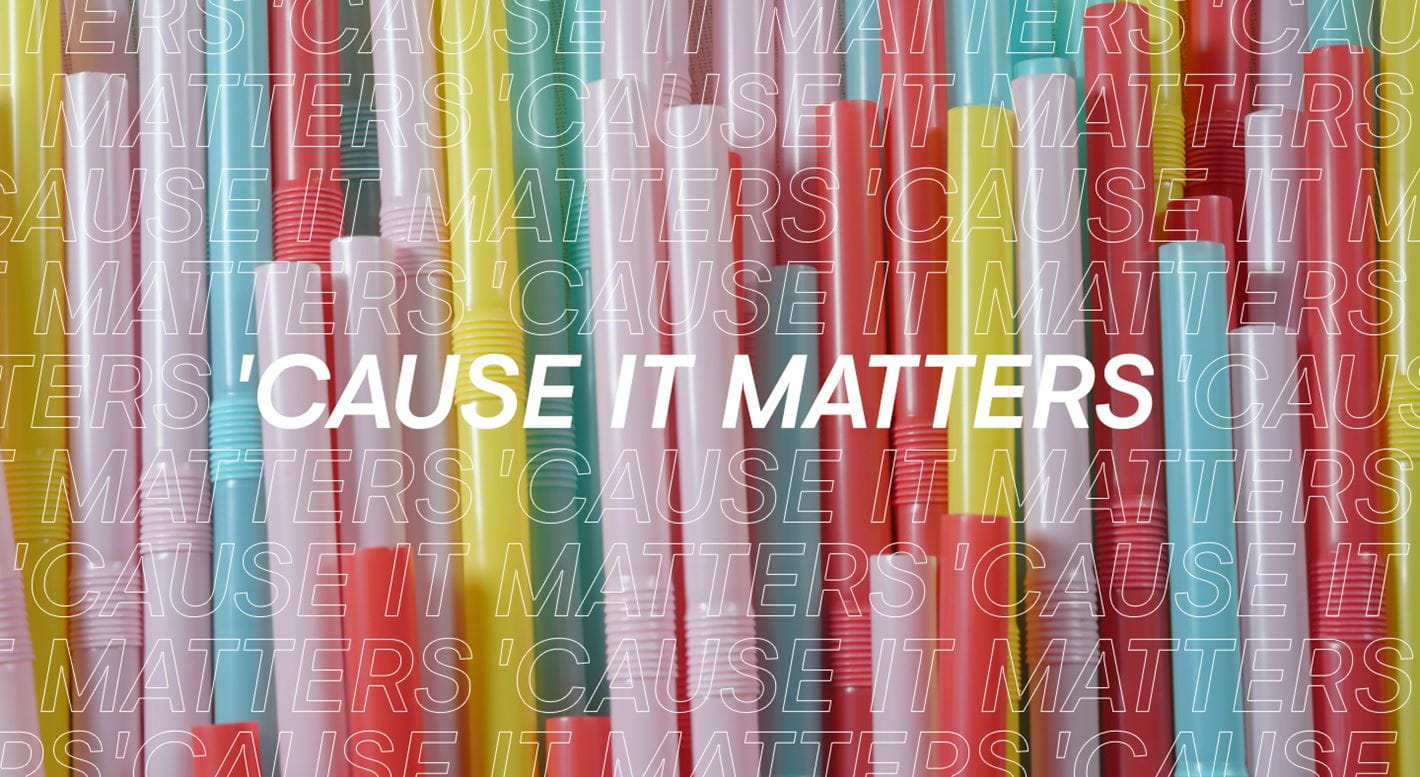’Cause it Matters – Spotlight on Sustainability: No Waste

When you think of Canada, what comes to mind? Probably maple syrup, hockey, Drake, and beautiful land. We’ll bet you don’t think of garbage. Unfortunately, the truth is that Canadians produce more garbage per capita than any other country on earth, generating approximately 2.7 kg each day.
To combat this troubling statistic, more and more of us have become aware of our waste production and are making more sustainable choices. Salome Royer-Labelle, a Traffic Manager from our Montreal office, is one of them.
Since beginning her no-waste journey in 2018, Salome has prioritized a lifestyle that focuses on the reuse of products to significantly reduce her waste footprint in the community. She hosts a YouTube channel to document her sustainable food, cleaning, and beauty products. We sat down with her to discuss her inspiration, habits, and tips on how to get involved.
How it started
Salome’s journey began with the infamous viral video of the injured turtle. Turtles misinterpret the plastic dumped into the ocean as food, and then injure themselves trying to consume it. Like many of us, she was alarmed by the video and made a point of cutting out straws.
From there, she realized that straws were just the tip of the waste iceberg and set out to significantly reduce all plastic from her life. Now she shops at bulk and no-waste stores, so her kitchen is completely free from packaging. Even her cleaning products are eco-friendly; she refills their bottles at nearby bulk stores.
The beauty industry is lagging
Salome notes that beauty and skin care products with sustainable packaging are still incredibly hard to find. And if she does find them, they’re often very expensive or not up to standard from a quality perspective. There’s huge market potential for sustainable skincare and makeup packaging and locally made products.
Interested in reducing waste?
“Don’t put too much pressure on yourself and take it one step at a time,” Salome advises. “I used to fixate on completely avoiding plastic, but you have to think critically, too: something that was made locally in Montreal that’s wrapped in plastic is still better than something in eco-friendly packaging that’s shipped from across the world.”
You can start with dry ingredients in bulk, like flour or pasta, things that don’t perish super-fast. Try to bring a reusable thermos or cup and utensils when you leave the house. And, most importantly, celebrate the small victories to keep up the momentum.
Personal habits matter, but policy matters more
While researching and gaining interest in the zero-waste lifestyle, Salome came across a wealth of intersectional sustainability advocates and theories, like @intersectionalenvironmentalist, @queerbrownvegan, and @jhanneu. These creators study how BIPOC people experience climate change more acutely than white people, and how pollution disproportionately affects people from marginalized backgrounds and communities.
“Individual decisions like zero waste are helpful, but big changes need community participation. I’ve become more interested in policy and paying attention to who I should be voting for,” she concludes.
The winds of change are on the horizon; elections are coming up in both Canada and France, and people are continuing to organize all over the world. To see how each Canadian federal candidate’s platform relates to climate change, you can use this tool.